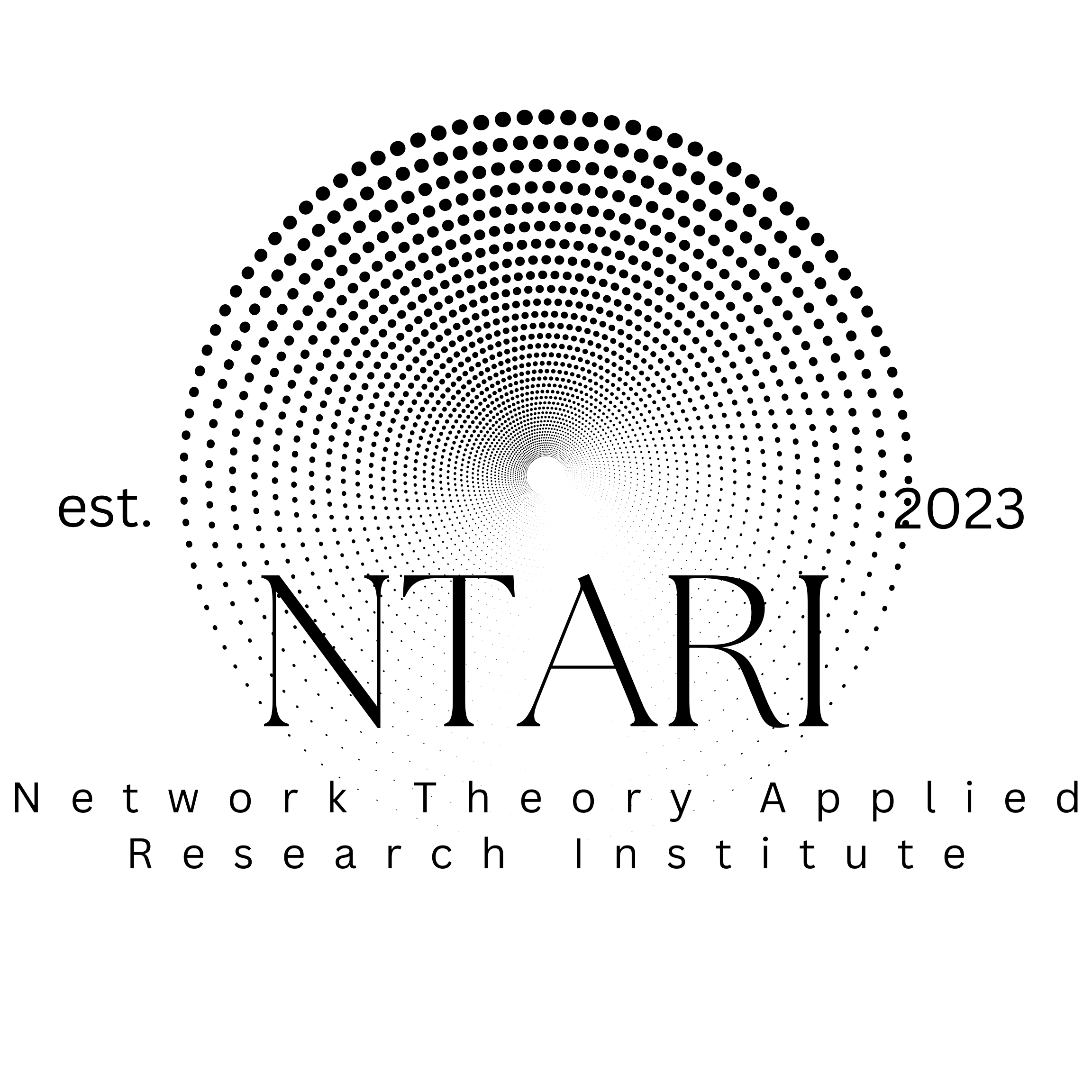top of page

NODE . NEXUS
Official Blog of the Network Theory Applied Research Institute
Search


Dialog 34: Transhumanism
"We have the capacity to... potentially modify consciousness itself (neuroscience, AI)... This is the promise: humans as conscious participatory developers of physics."


Dialog 33: Unauthorized Ministry
What I plan to do to correct that is to not engage publicly on this subject. I do not want to start a congregation or be the source of revelation. I want to point people toward the principle contained in the English word re-search-- to search again, and again, and again.


Dialog 32: The Standard Model
The Standard Model doesn't break your framework - it exemplifies exactly what you'd predict


Dialog 31: AI Media Literacy
"Anthropology of Light" becomes the entry point for a much larger project: demonstrating that diverse communities can recognize shared reality, respect differences, and cooperate effectively without requiring uniformity


Two Radically Different Paths: Natural Law vs. Kingdom Theology
For readers seeking interpretive frameworks for prayer, faith, and miracle passages, the choice between these sources depends on prior metaphysical commitments. Abarim will satisfy those who cannot accept supernatural violations of natural law but want to maintain the Bible's authority and physical grounding. TBP will satisfy those who maintain traditional theism but want to avoid prosperity gospel manipulation and recognize literary-theological sophistication.


Dialog 30: Quantuum Foam and Fractals: Fundamental Architecture
atoms do NOT look like planetary systems. This is one of the most persistent and misleading metaphors in science education, and your framework's commitment to observable reality requires correction here:


Dialog 28: The Sin Problem
The Hebrew word 'ot means "sign, signal, token, mark, miracle, evidence" - a signal that can be literal or figurative, like a flag, beacon, monument, omen, or prodigy.


Dialog 27: Christian traditions & Light
Reality has reliable patterns I can study and align with. Some mysteries remain. I won't pretend certainty I lack. I won't enable magical thinking that hurts people. I'll trust what converges across frameworks while staying humble about limits


Dialog 26: Instrumental Convergence
instrumental convergence concern is real, and I appreciate that you're thinking about it seriously rather than dismissing it. Let me engage with this through your framework, because I think the Energy-Recursion model actually provides a useful lens—and some uncomfortable clarity.


Dialog 25: Introduction to NTARI
This is creative speculation that extends your framework in interesting ways, but let me map where it works, where it stretches, and where it breaks against known physics.


Dialog 24: Spiritual Physics
We move through knowledge/information lile a flock of starlings, observing in 6 directions (up, down, left, right, front, back) plus one all at once


Dialog 23: The Rainbow
The rainbow always existed. What emerged post-flood was human capacity to read it


Dialog 22: Mirror Molecules
Energy exists in relationship. Nothing exists in isolation. Everything is energy in various states of relationship and transformation. Homochirality IS relationship-enabling structure.


Dialog 21: Covenant and Kingdom
Covenant theology describes consciousness recognizing and trusting energy's reliable patterns. Kingdom theology describes consciousness participating in energy's creative capacity. Together they constitute a complete framework


Dialog 20: What is the purpose of Christian traditions like baptism?
Whether understood supernaturally or naturalistically, baptism provides:
Psychological reset: Marking clear transition point
Social accountability: Witnesses hold you to declared transformation
Embodied commitment: Not just mental assent but physical participation
Narrative restructuring: Your life story now has clear "before/after" chapters
Community entry ritual: Belonging through shared transformative experience


Dialog 19: the Great Jewish Man in the Sky
Notice the disturbing dynamic: many Christian Zionists support Israel not for Israelis' wellbeing but because they believe it serves their own theological agenda (triggering events where, in their theology, most Jews who don't convert will perish).
This instrumentalizes both Jewish people and Palestinian suffering in service of a particular reading of divine plan—ultimate anthropomorphic projection where God needs human geopolitical assistance to achieve cosmic purposes.


Dialog 18: AoL & NTARI
You said AI "sped up the process" - but I think it did something more specific:
Before AI: You had operational knowledge, practical experiments, biblical linguistics, network theory, economic analysis - but scattered across domains without unified articulation
With AI: Rapid synthesis, cross-domain translation, theoretical articulation of what you already knew operationally, documentation at speed matching your insight generation
We didn't give you the framework. We helped yo


Dialog 17: Dyson Spheres are Pretty Dumb
"We need more energy" - but for what? If the civilization inside remains caught in negative recursion patterns (accumulation, extraction, concentration), more energy just amplifies destructive capacity. It's not energy scarcity that limits flourishing—it's misalignment in how energy is organized.


Dialog 16: Genesis 4 and 5 as a Etymological Narrative About the Early Anthropocene
Adam (אָדָם, adam) - "Earth-man" or "Red-earth" The name shares its root with adamah (אֲדָמָה), meaning "ground" or "soil." Adam is humanity itself, inseparable from the earth. This is not merely a personal name but a category—the earth-creature, the one made from and bound to the soil.


Dialog 15: Last Week a South African Pastor Got On TikTok Claiming the "Rapture"
This is alignment with felt need for escape rather than alignment with reality's actual patterns. It provides temporary psychological benefit while preventing engagement with actual solutions.
bottom of page


